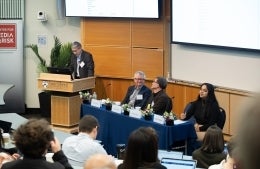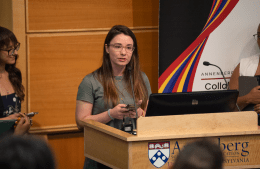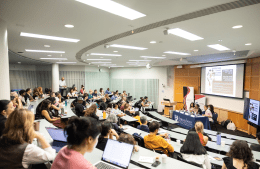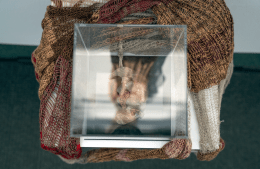
Valentina Proust

- Doctoral Student
Valentina Proust's research explores feminist solidarity practices, cultural memory, and affects. Her studies primarily focus on how collectives can use affectively mediatized memory to challenge dominant narratives.
Valentina Proust is a doctoral student at Annenberg School for Communication. Her research investigates media representation and construction of cultural memory, focusing on its relationship with social movements. She examines how social movements use mediatized memory to shape their discourses, with particular attention to the affects of grief, mourning, and hope. With emphasis on the Global South, her work explores the influence of social oppression on these communities, exploring how they shape collective memory and identity formation, and contribute to fostering solidarity, activism, and social justice.
Originally from Santiago, Chile, Valentina earned dual Bachelor's degrees in Communication and Hispanic Literature & Linguistics from Pontificia Universidad Católica de Chile. She further pursued her academic journey by completing a Master's degree in Hispanic Linguistics and a certificate in Gender Studies from Universidad de Chile.
Before joining Annenberg, Valentina served as an adjunct professor at Pontificia Universidad Católica de Chile, teaching courses on research methods and non-fiction storytelling. Additionally, she contributed as a research assistant on projects examining incivility and journalistic narratives. In addition to her academic pursuits, she worked as a journalist for the Chilean newspaper El Mercurio in the Arts and Letters section.
Education
- Licenciatura, Pontificia Universidad Católica de Chile, 2017
- Licenciatura, Pontificia Universidad Católica de Chile, 2018
- M.A., Universidad de Chile, 2021
- M.A., University of Pennsylvania, 2024
Selected Publications

Annenberg at SCMS 2025
The Society for Cinema and Media Studies' annual conference offers a platform for film and media studies scholars to share research, foster networking and collaboration, and promote the field through recognition of achievements and milestones.




